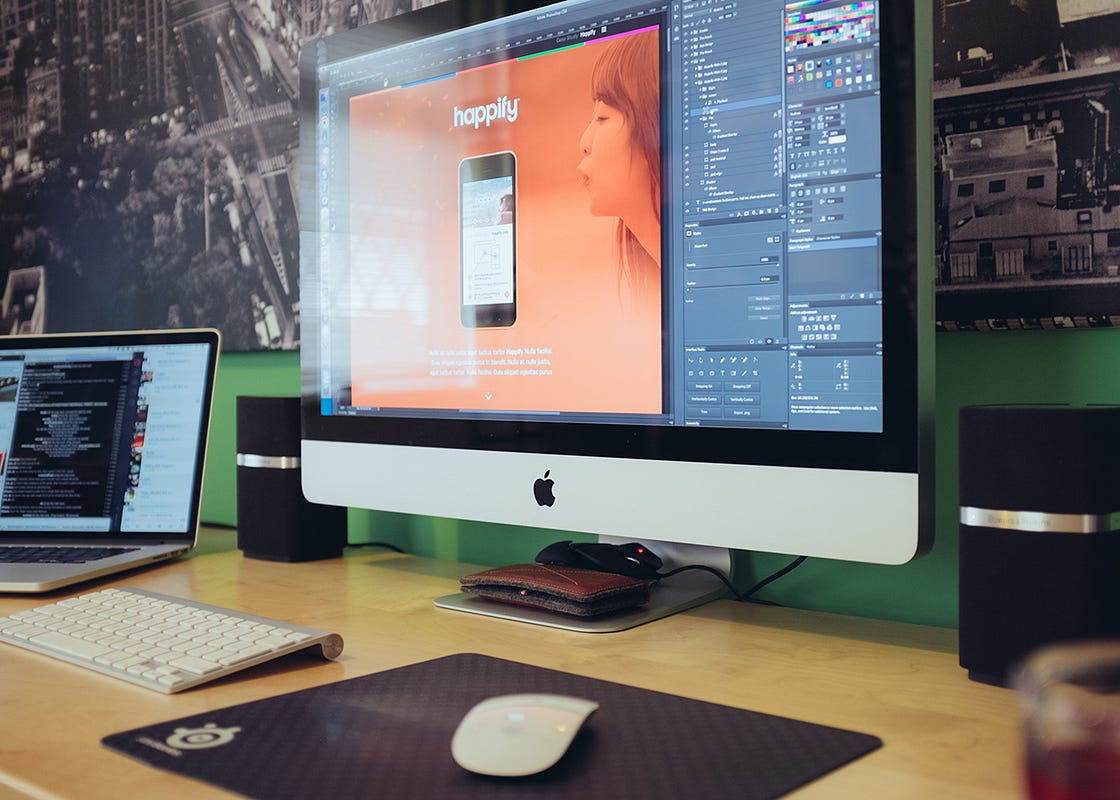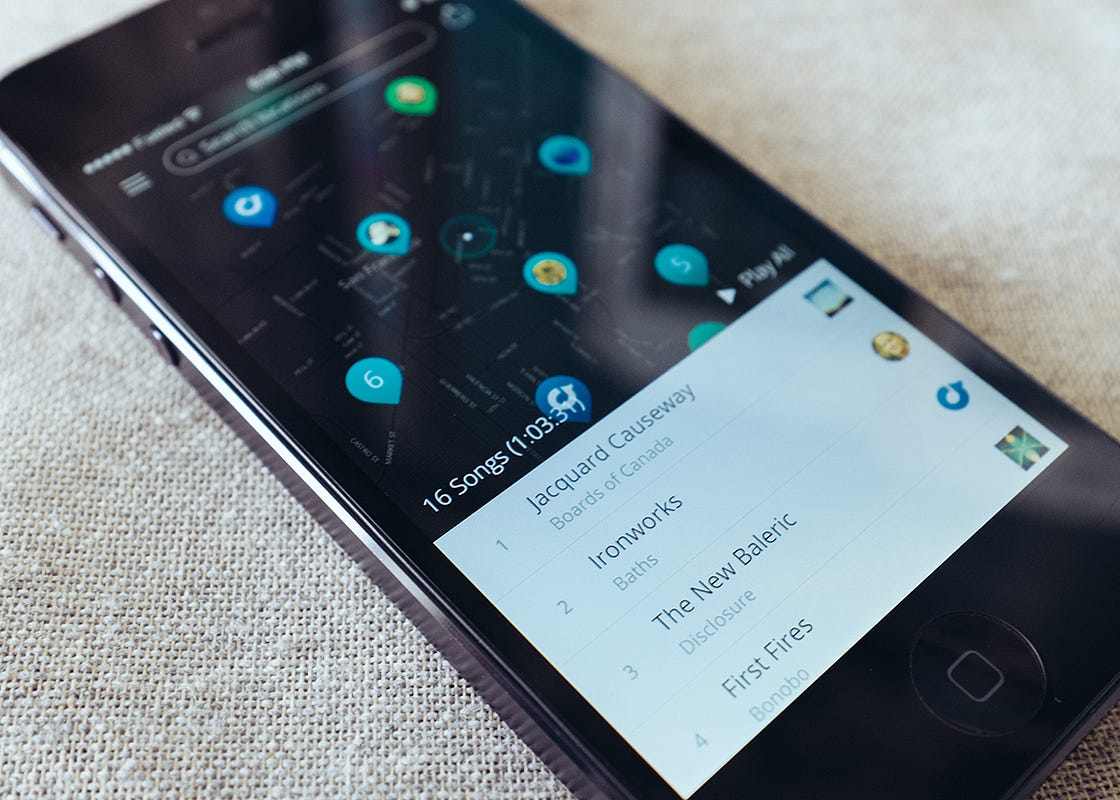Featured Articles

Article in Under the Hood category.
An Interview with Glenn Hitchcock, Fueled’s Senior UI Designer
I’m a designer of 4 years from England. I graduated from designing killer signature pics on gaming forums in the late 2000s and went professional…
I’m a designer of 4 years from England. I graduated from designing killer signature pics on gaming forums in the late 2000s and went professional in 2010. I’m currently the Senior UI Designer for the New York and London based agency Fueled, and have been focused mostly on product design for the last three years.

The kind of work I do will probably change in response to new innovations. Maybe I’ll be doing spatial direction for Oculus Rift GUI.
When your friends or parents ask you what job do you do, how do you answer?
I tend to whip out my iPhone and launch any app, and explain what kind of work I do in the making of one. It helps to be visual and demonstrate when you’re talking to people unfamiliar with that line of work. I’ll point out the branding, aesthetics, information hierarchy, etc. I’ll then go on to explain where strategists and developers come in, so they understand how the rest gets built.
What is your background, how did you train?
I graduated from the University of East Anglia with a Computer Science degree but wasn’t particularly interested in programming. I spent a couple of years trying to find what I wanted to do. I have no formal art background and never studied anything related to product design, so most of my knowledge comes from the abundance of tutorials out there. Props to tutors like Chris Spooner and Rogie King.
What the web can do to make this world a better place? How did the web improve your life?
The most significant thing it can do is remain open. No restrictions, just stay its course and continue to be a rapidly self validating compendium of human knowledge and communication.
Can you show us three examples of interface that, in your opinion, improved everyday life?
Xerox Alto’s operating system (the first GUI OS), Microsoft Word for being the mainstream canvas of writing, and Google’s search results.
On Quora some time ago there was a long discussion to around the question, “What is the most intuitive interface ever created?” According to Felipe Rocha it is the nipple. What do you think?
A switch, provided it’s plugged into something where you can perceive the difference in states.
What's your work day like?
I’ll start working at 9am, catch up with my fellow designers early in the morning to see what they’ve got going on, and speak with awaking New Yorkers later in the afternoon. Client calls can be dotted around the afternoon, and internal banter is an ongoing thing. I usually finish around 5pm after reviewing what my team have accomplished in the day.
What is the most stimulating and challenging project you have accomplished?
I worked on a side project for Rdio last year called Drop. The idea was to have people drop songs on locations, and begin generating area playlists. You could listen to the music people placed around you, and send tracks to friends with a memorable location attached.

It was challenging because we wanted users to be able to contribute with ease, and understand the relation between a song and its location. We also began designing it on the day iOS7 was revealed, so it required a sharp change in visual direction to align with the new aesthetic.

What is, among the existing digital services, the one you wanted to do?
I always wanted to redesign Xbox Live in my spare time, as each iteration has favoured serving advertisements and increasing purchases, rather than aiding the user.
Many designers commit the mistake of starting a project directly from Photoshop, is there a perfect design method? What is your approach to the creative process?
The method required depends on the context of what you’re attempting to achieve. If you have a small personal idea and already understand what’s needed, delving into Photoshop or into a coding tool is absolutely fine.
Companies have longer processes (e.g. Feature Set to Wireframes to Designs) as they’re tried and trusted ways of assessing project direction and progress amongst a group of people.
The “design” is an important part of our analogic life. What is the role of the designer in our digital life?
To have empathy for the intended user.

Do you believe it is important for a designer to have a deep knowledge of matters as User Experience, Interaction Design, Product Design, and Front-end development?
A wealthy understanding of many facets helps, but being a designer sometimes calls for just one of them, so it’s not always a requisite that you understand many disciplines.
In which way do you make a difference between User Interface and user experience?
UI is visual, UX is many things too long to list here. Quora always has this covered.
How do you think that your career and job will evolve in the next 5 years?
I’ve already started to direct designers, so I imagine I’ll be doing more of that, and having a larger role in the business decisions of wherever I’m at. The kind of work I do will probably change in response to new innovations. Maybe I’ll be doing spatial direction for Oculus Rift GUI.
There's a famous quote from noted American graphic designer David Carson, “Graphic design will save the world right after rock and roll does.” Will User Interface Design save the world, before, at the same time, or after the graphic design?
After, but I don’t think UI design is significant enough on its own to change the world.

What do you think about Dribbble? Is it a good way to get a job? What’s the best way to find a job as designer?
It’s a great collage of inspiration and also doubles as a career game. It’s the best way of seeing what designers are working on, how they’re innovating and (sometimes) why. Others use it as a means to further their careers; using trends, unsolicited redesigns, etc to get recognition. I’m fine with that; plenty have used the site to make their name known and get clients.
What book would you recommend to a Junior Designer?
I’m a big fan of The Icon Handbook as a great learning tool and reference for one of the most significant parts of UI design.
What tools do you use for design? What tools for the projects management?
I like HipChat for communication, Google Docs for documentation, Dropbox for collaborative file sharing. The Adobe suite is the industry standard, but my team has recently been trialling Sketch and it’s headed in the direction most people want to be doing their work in. It’s the best thing since Fireworks (rest in peace). It’s been a while since I did front-end but I’ve always used Coda for that.
The author, Frank Rapacciuolo, is a UI designed based in Boston and Milan. Check out his collection on Medium, UI/UX Interviews: "UI/UX Interviews is a collection of interviews done by designers about designers. The interviews focus on the web and mobile design space and the internal processes of graphic design. The conversations are endowed with opinions and comments of the most active designers of the moment." You can view the post original post here.












